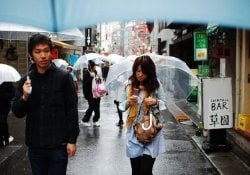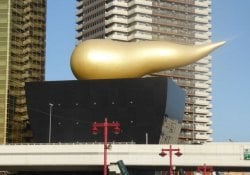Water is one of the most essential things for life, a very important word especially in Japanese culture. Ever wondered how to say water in Japanese? In this article we are going to look at the meaning of Mizu and other ways of saying water in Japanese, as well as its influence on Japanese culture.
We also recommend reading:
- How to say Sun and Moon in Japanese
- Onsen - Natural Hot Springs of Japan
- Pictographic Kanji – Ideograms and Pictograms
Mizu [水] - Water in Japanese
The word mizu (水) represents the idea of water or liquid. This word is used both to refer to drinking water and to water in general. Furthermore, “mizu” can be found in various expressions and compound words related to different contexts and concepts involving water.
The Chinese water ideogram, 水, is pronounced as "Shuǐ" in Mandarin and has a story that goes back to thousands of years. In Japanese the ideogram may also have the reading of "Sui" [スイ].
The original form of this character was a pictographic image that represented flowing water, with three drops of water falling. That image has evolved over time, and the character's current form still retains the essence of that original image.
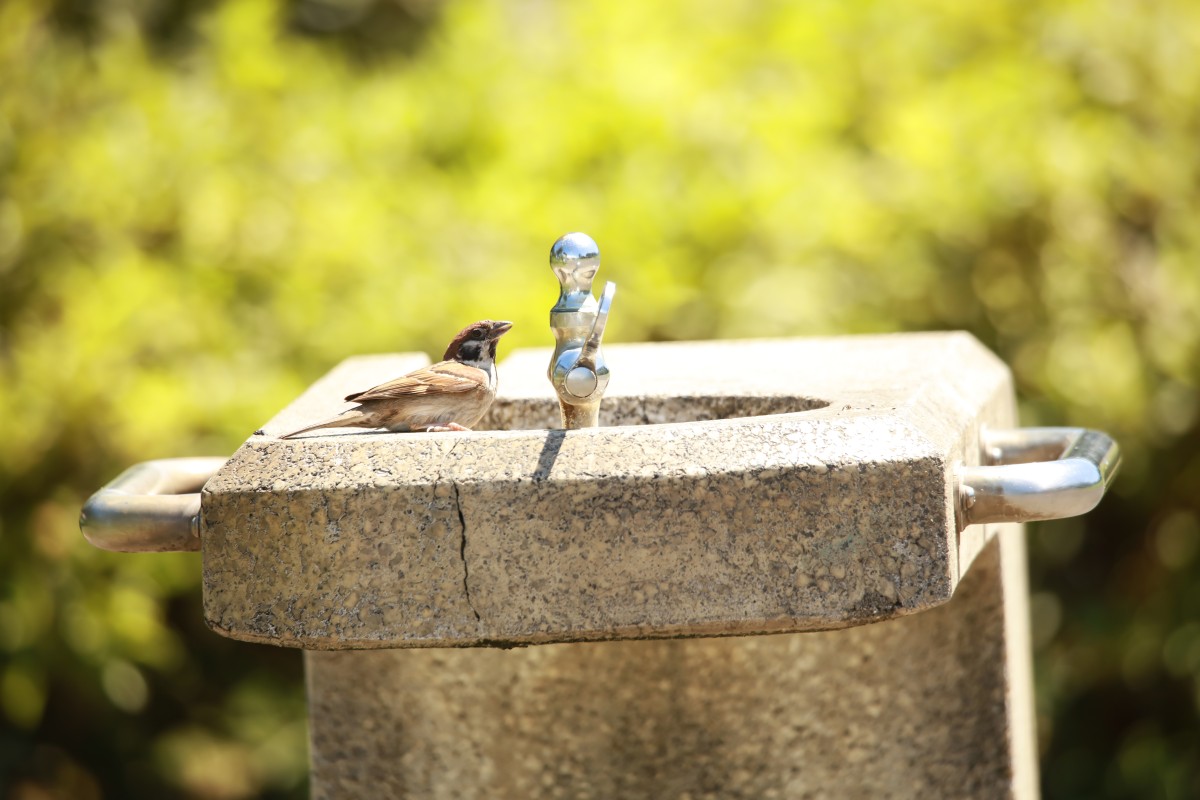
Different Types of Water in Japanese
There are other ways to say "water" in Japanese besides "mizu" (水). Some of these words are used in specific contexts or refer to different types of water. Here are some alternatives to say "water" in Japanese:
ウォウォタタタ wōtā”: This word is the Japanese transliteration of the English word “water”. It is mainly used in international contexts, such as on product labels or to refer to foreign brands of bottled water.
お水 (おみず) - "omizu": This is a polite way of referring to water. Adding the prefix “o” (お) to a Japanese word is a common way to make the word more respectful or polite.
湯 (ゆ) - "yu": It specifically refers to hot water, such as the water used for bathing in an onsen (Japanese hot spring) or sentō (public bath). In the context of tea, such as green tea, it can be used as お湯 (おゆ), which means hot water.
雨水 (あまみず) - "Amamizu": Literally, "rainwater" is the combination of words 雨 (あめ) "love", which means rain, and 水 (みず) "mizu", which means water. This word is used to describe the water that falls during the rain.
海水 (かいすい) - "Kaisui": It means "seawater" and is formed by the combination of 海 (うみ) "UMI", which means sea, and 水 (みず) "mizu", which means water.
汽水 (きすい) - "Kisui": This word refers to water containing gas, such as gas with gas or gas mineral water. It is formed by the combination of 汽 (き) "ki", which means steam or gas, and 水 (みず) "mizu", which means water.
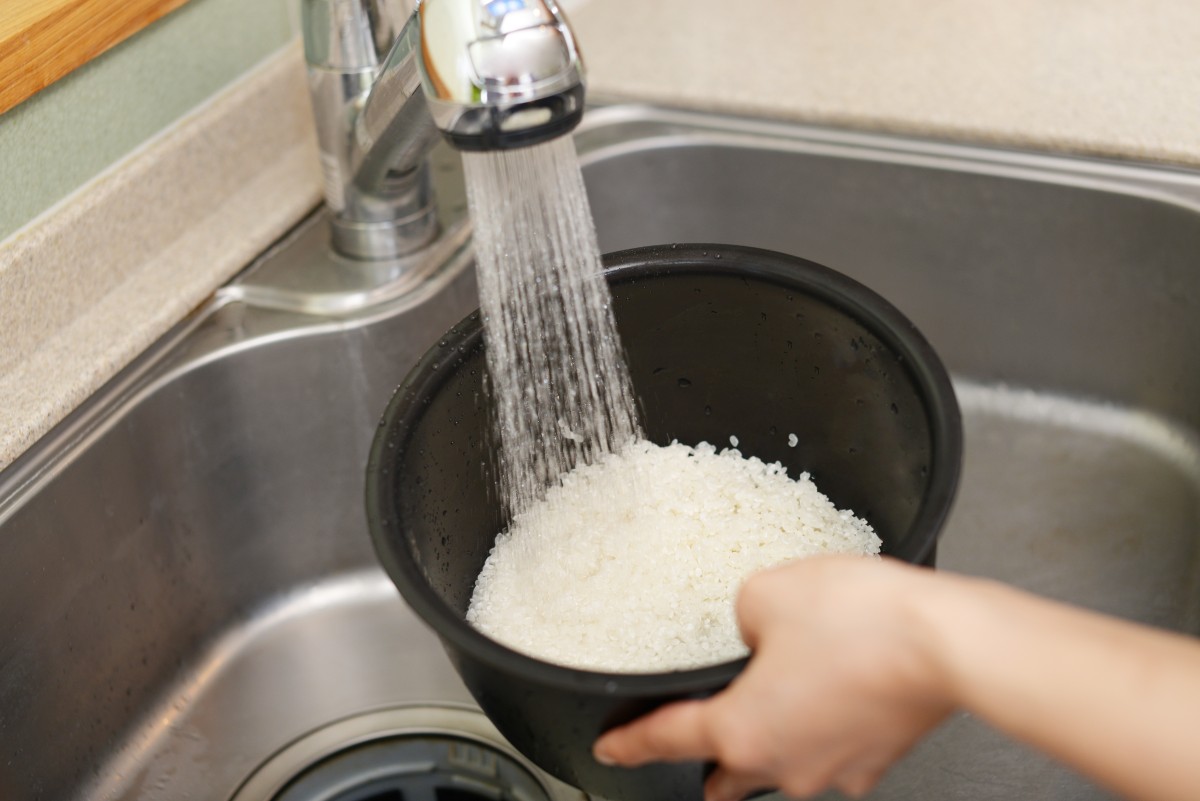
The Water Radical [氵]
The radical 氵 is known as “sanzui” (さんずい) in Japanese and is related to the element of water. The radical 氵 has its origin in the Chinese character 水, which represents water, as mentioned earlier.
When used as a radical, the character's shape is simplified to 氵, which consists of three vertical strokes. This makes it easy to incorporate it into other kanji as a component.
The radical 氵 is used as a component in many kanji related to water or liquid concepts. When a kanji includes the 氵 stem, it usually indicates that the kanji has something to do with water or a water-related concept. Some examples of kanji that feature the 氵 stem include:
- 泳 (えい) - "Hey" - swim
- 河 (かわ) - "kawa" - river
- Wave wave
- 泣 (なく) - "naku" - cry cry
- 海 (うみ) - "umi" - Sea sea ocean
- 油 (あぶら) - "abura" - Oil oil
- 湖 (みずうみ) - "lake" - lake
- 洗 (あらう) - "arau" - Wash to wash
- 満 (みちる) - "michiru" - fullness fill, get full
- 池 (いけ) - "pond" - pond, tank
- 湯 (ゆ) - "yu" - hot spring/water hot water, bath water
- 温 (おん) - "on" - temperature, warmth Warm Hot
- 流 (りゅう) - "ryuu" - flow/stream flow, current
When learning kanji, it's helpful to be familiar with radicals, as they can help you identify the meaning or pronunciation of an unfamiliar kanji.
We recommend reading: Bushu - Radicals - Kanji structures and their variants
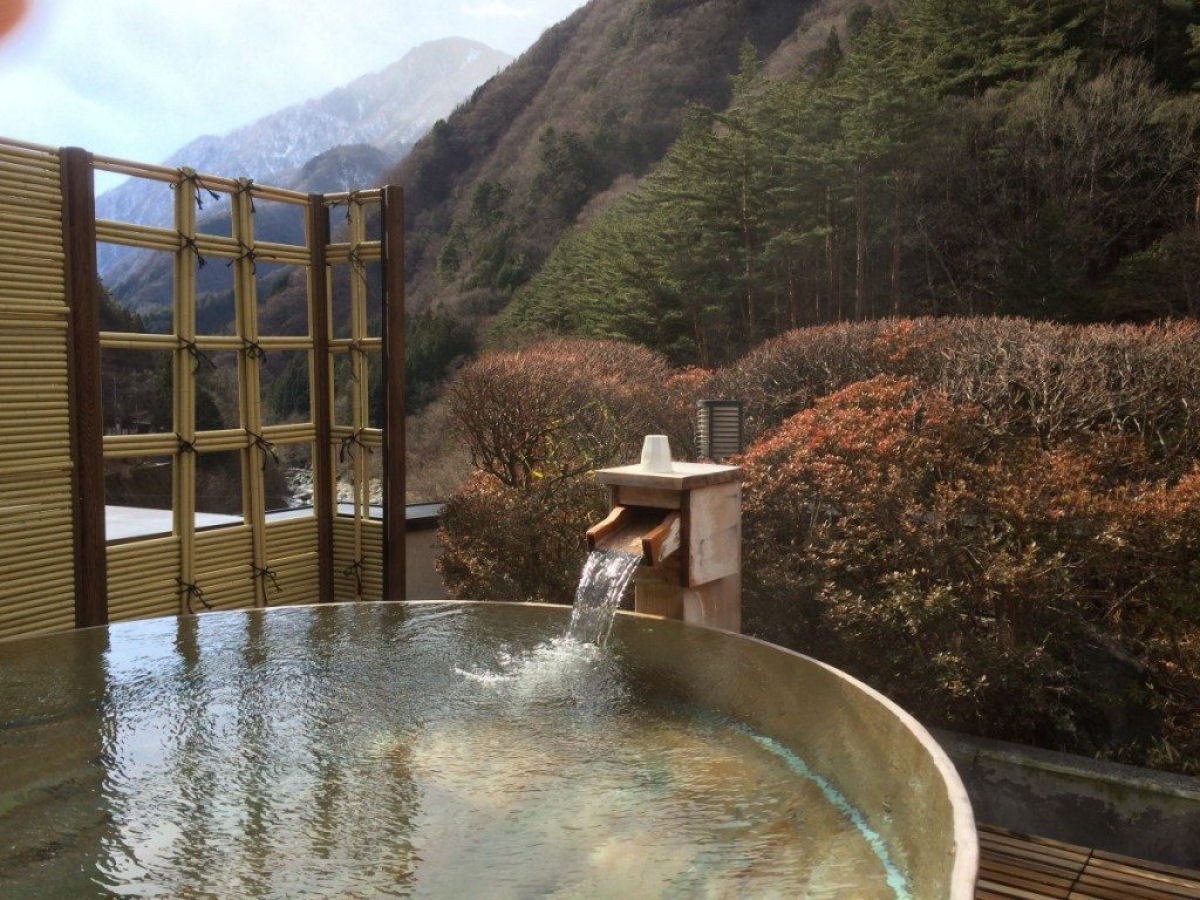
The article is still halfway through, but we recommend also reading:
Water in the Japanese Cultural Context
Water is a fundamental element in Japanese culture and plays an important role in many areas, including religion, art, architecture and cuisine. Let’s look at some examples where water and its corresponding word, “mizu”, play a crucial role:
Shinto: In Japan, water is often associated with purification. In Shinto, the country's native religion, water is used in purification rituals called "misogi" and "temizu". Practitioners wash themselves with pure water to get rid of impurities and prepare to enter a Shinto shrine.
Japanese gardens: Water is an essential component of traditional Japanese gardens, which are designed to promote harmony and tranquility. The presence of “mizu” in fountains, lakes and streams creates a serene and relaxing atmosphere, reflecting respect for nature and the search for balance.
Martial arts: In Japan, water also symbolizes adaptability and fluidity. In the philosophy of Japanese martial arts, it is important to be like water, adapting to situations and flowing without resistance.
Read also: The 10 Japanese martial arts + list
Cuisine: Water is essential in Japanese cuisine, used in the preparation of teas, soups and rice cooking, among others. Pure, high-quality water is prized in Japan, and it is common for restaurants and teahouses to advertise the source of their water to highlight its quality.



